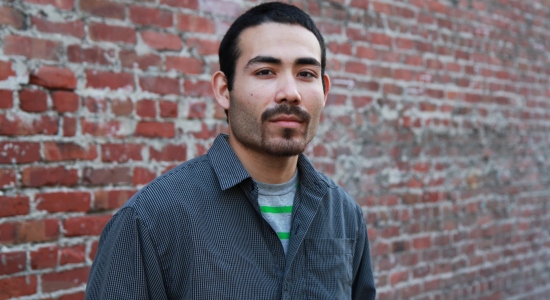By: Joaquin E. DiazDeLeon

I didn’t learn much of anything while I was locked inside California’s Division of Juvenile Justice. Most of my teachers were a little too old and a little too scared to actually teach us. They had no idea how to relate to a bunch of kids labeled gangbangers and thieves, and students took advantage of their fear. In order to avoid actually teaching, they’d give us packets of basic worksheets that were no more challenging than a 4th graders homework. But I finished the busywork, and I got my diploma.
The whole point of juvenile incarceration should be about reform, preparing young people to reenter society. Too often though, I felt like nothing more than a paycheck for guards whose sole job it was to lock and unlock doors. I can’t help wondering if they were afraid to educate us for fear we might commit smarter crimes, or worse yet, maybe we’d even rehabilitate ourselves and put them out of work.
At 16, I was sent to two different state facilities that were more than a hundred miles from my hometown. Gangs dominated the culture, and egos raged out of control. I was in a fight on my very first day.
Separated by a two-hour drive from my mom, my town, and everything I knew, I spent a long time believing that I was labeled for life. I couldn’t imagine a day when I would be anything other than my crimes…when people could see me as a human again.
I think people are missing the point when they debate whether or not counties should retake control of juvenile justice, because I’m shocked communities ever gave teenagers away to the state in the first place. Rehabilitation happens when teenagers are forced to connect to their communities and confront their mistakes. Teen offenders need to understand that they’re defecating where they eat. They need community support, instead of being locked up far away.
In state lockup, I was mistreated and minimized, and when I returned to my community I felt like an unwanted stranger. Call it realignment, or whatever you want. But it’s time we change the system.
Youth Radio also spoke to Bill Sessa, Communications Manager at the California Department of Corrections and Rehabilitation, about his response to critics of California's Division of Juvenile Justice.
Originally published on Youthradio.org, the premier source for youth generated news throughout the globe.
Youth Radio/Youth Media International (YMI) is youth-driven converged media production company that delivers the best youth news, culture and undiscovered talent to a cross section of audiences. To read more youth news from around the globe and explore high quality audio and video features, visit Youthradio.org